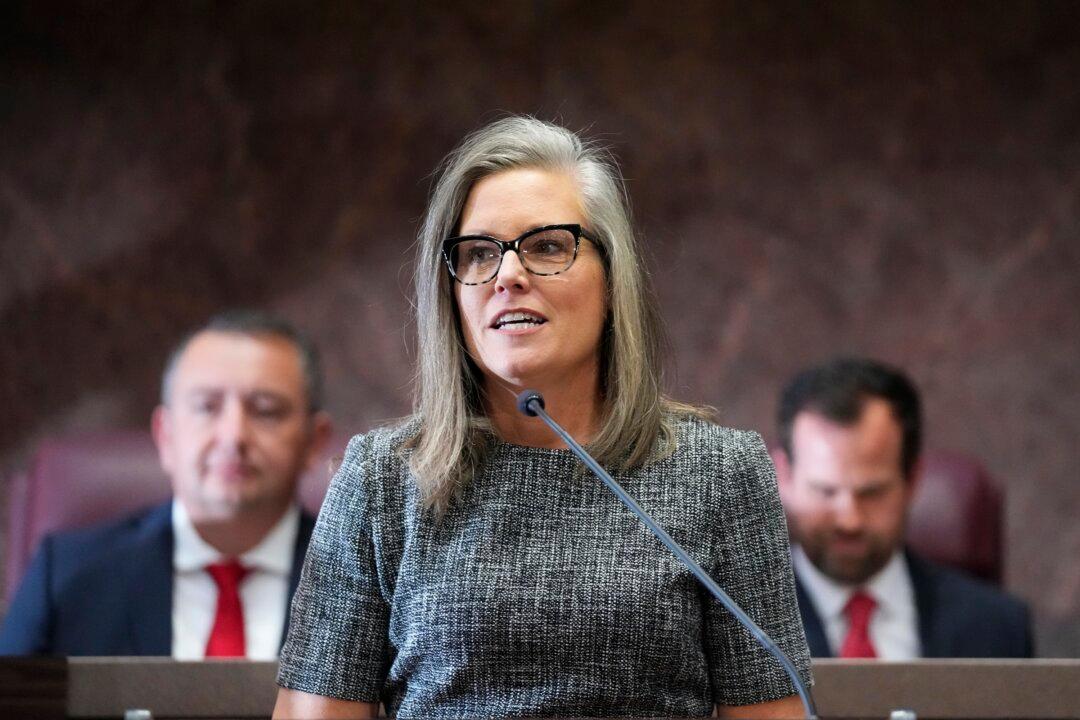An Arizona state lawmaker criticized Gov. Katie Hobbs on Monday for vetoing a bill that sought to make it a crime to film pornography at public schools and shield minors from sexually explicit materials.
State Sen. Jake Hoffman, a Republican, introduced Senate Bill 1696 after two Mohave County teachers—spouses who worked at different schools in the same district—were fired after students and parents found pornographic material that the pair had filmed in one of their classrooms and posted online.





